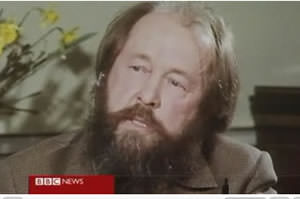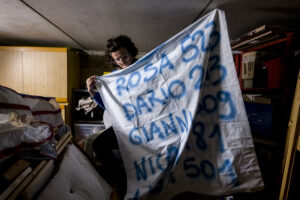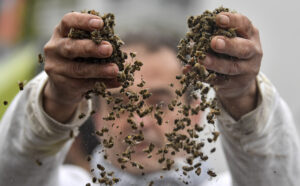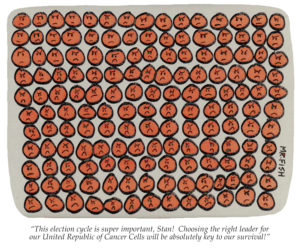A Moral Force Moves Into History
He was born into a Cossack family, which was just one of many indications that life wasn't exactly going to be conflict-free for Alexander Solzhenitsyn, who died Aug. 3. The Russian writer survived eight years in Stalin's notorious gulags and became one of his country's most controversial critical thinkers, a process that continued during the two decades he was forced to live in exile.
He was born into a Cossack family, which was just one of many indications that life wasn’t exactly going to be conflict-free for Alexander Solzhenitsyn, who died Sunday. The Russian writer survived eight years in Stalin’s notorious gulags and became one of his country’s most controversial critical thinkers, a process that continued during the two decades he was forced to live in exile.
Your support matters…BBC:
On his return to European Russia, he was allowed, following Nikita Khrushchev’s denunciation of Stalin, to publish his largely autobiographical One Day in the Life of Ivan Denisovich, in 1962.
This made him an instant celebrity. But with the subsequent fall from power of the reformist Khrushchev, the KGB stepped up its harassment of Solzhenitsyn, forcing him to publish his work abroad.
His novels The First Circle and Cancer Ward were further damning allegories of the Soviet system.
In 1970, he was awarded the Nobel Prize for Literature. But he refused to attend the award ceremony in Stockholm for fear of not being allowed back home.
In 1973, the first of the three volumes of The Gulag Archipelago was published in the West. He had been hiding the work from the authorities, fearful that people mentioned in it would suffer reprisals.
Independent journalism is under threat and overshadowed by heavily funded mainstream media.
You can help level the playing field. Become a member.
Your tax-deductible contribution keeps us digging beneath the headlines to give you thought-provoking, investigative reporting and analysis that unearths what's really happening- without compromise.
Give today to support our courageous, independent journalists.






You need to be a supporter to comment.
There are currently no responses to this article.
Be the first to respond.